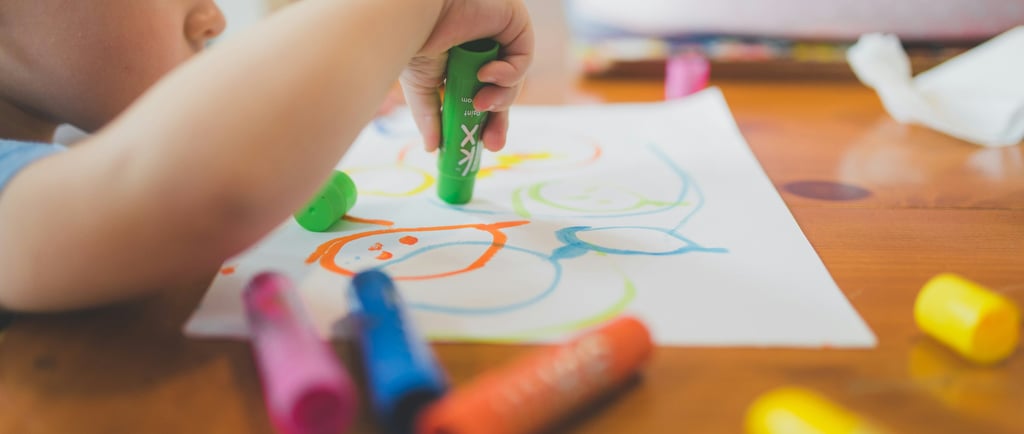Myths & Money: When to Start Potty Training, Cultural Norms, and Expert Advice
Think potty training has to wait until age 3? Bust common myths, learn how culture shapes timing, and discover how early training saves money.
POTTY TRAINING MYTHS
Sorcha Cavanaugh
8/7/20253 min read


The truth is, there’s no single “right” age to start potty training — but there are plenty of outdated or misleading beliefs that can cause hesitation. In this post, we’ll bust some of the biggest potty training myths, look at how cultural norms shape expectations, and share expert-backed tips for starting with confidence. We’ll also show you how early potty training can save your family hundreds of dollars a year.
Myth #1: You Should Wait Until Your Child is 3
This is one of the most common misconceptions in modern parenting. While many children in the U.S. aren’t trained until age 3 or beyond, research shows that most toddlers are physically and emotionally ready much earlier — sometimes as early as 15 months.
Waiting until 3 isn’t inherently harmful, but it isn’t necessary for every child — and starting earlier, when readiness is clear, can make the process smoother and faster.
Myth #2: Early Potty Training is Harmful
Some parents worry that starting before age 2 could be damaging — either physically or emotionally. But when done gently and without pressure, early potty training is both safe and developmentally appropriate.
Concerns about harm often stem from outdated methods that relied on punishment or strict schedules without considering a child’s comfort. Modern approaches focus on positive reinforcement, patience, and flexibility, making early training a supportive process.
Multiple studies have shown no increased risk of health or behavioral problems when training begins earlier, as long as the child is ready and the parent’s approach is encouraging rather than forceful.
Myth #3: Boys Are Always Slower Than Girls
It’s a popular belief that girls are naturally easier or faster to potty train than boys. While some studies have found small average differences in age of completion, these differences are measured in months — not years — and are often outweighed by individual personality and readiness.
I believe the age you start training is far more important than gender. Some boys are potty-trained well before age 2, while some girls aren’t ready until later.
Bottom line: Don’t delay training based on gender alone.
Cultural Norms: How the World Approaches Potty Training
Potty training expectations vary widely around the world, and many cultures start much earlier than in the U.S.
China & Vietnam: Elimination communication (EC) is common, starting in infancy. Parents use cues, timing, and observation to help children use the toilet from a very young age.
Parts of Africa & India: Early training is a practical necessity due to limited access to disposable diapers. Many children are trained before 18 months.
Western Europe: Countries like France and Italy often begin training between 18 and 24 months, blending readiness cues with cultural expectations for earlier independence.
In contrast, the U.S. trend toward later potty training emerged alongside the rise of disposable diapers in the mid-20th century and a shift toward child-led approaches.
Looking at global practices can help parents see that early potty training is both normal and achievable — and that “late” training is more of a cultural choice than a developmental requirement.
The Money Factor: How Early Potty Training Saves Families Hundreds
Potty training isn’t just a developmental milestone — it can also be a serious money saver. The average U.S. family spends between $800 and $1,000 per year on disposable diapers, not including wipes or diaper pail refills.
Even moving the potty training timeline up by three to six months can save hundreds of dollars. For families using cloth diapers, earlier training reduces laundry loads, water usage, and wear-and-tear on supplies.
There’s also an environmental benefit: fewer diapers in landfills means a smaller ecological footprint. With disposable diapers taking hundreds of years to decompose, every month without them makes a difference.
Expert Advice for Parents Considering Early Potty Training
Whether you’re motivated by myths you want to bust, cultural inspiration, or the money factor, success with early potty training comes down to preparation and approach.
Use gentle, positive methods — avoid punishment or high-pressure tactics.
Adjust to your child’s personality — some thrive on routine, others need more flexibility.
Commit to consistency once you begin, especially in the first 1–2 weeks.
The American Academy of Pediatrics notes that a supportive, responsive environment is the most important factor in potty training success — no matter when you start.
Conclusion
Potty training doesn’t have to be delayed until age 3, and early training isn’t harmful when approached with patience and positivity. Around the world, families start much earlier, often with great success — and the benefits can be both practical and financial.
By letting go of outdated myths, learning from global perspectives, and considering the money and environmental savings, you can feel confident exploring early potty training if your child is ready.
If you’d like step-by-step guidance, join our Early Potty Training Workshop to learn a gentle, proven method that works.
Early Potty Training Workshops
Learn practical strategies for completing potty training with toddlers aged 15-24 months. This 2-hour workshop covers readiness signs, step-by-step methods, and how to handle common challenges like accidents and resistance.
Not Ready to register?
© 2025. All rights reserved.
Enter your email address so we can notify you about future workshops